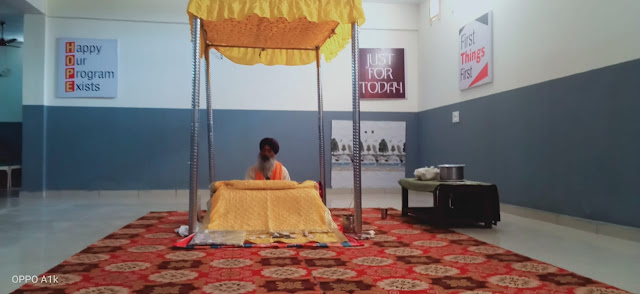Types of treatment programs available at drug rehabilitation centers
Rehabilitation treatment program
Drug treatment or drug rehabilitation programs refer to the process of providing psychotherapeutic and medical treatment to someone who is addicted to psychoactive substances such as hard drugs, prescription drugs, or alcohol. Nasha Mukti Kendra aims to enable the affected person to stop abusing the substance of interest and thereby avoid negative effects: ie. financial, social, psychological, physical, and even legal consequences.
Psychological dependence
Nasha Mukti Kendra in Solan helps teach addicts how to live in a drug-free environment. In the program, patients are advised not to contact people who want to stop using addictive substances. This program aims to guide patients to review their habits and change them for the better. Legal drugs like alcohol require absolute abstinence, not moderation, which is often not tolerated by people with a history of alcohol abuse.
The types of treatment available
Drug rehabilitation is handled through various programs, including; Access to local support groups, addiction counseling, medical care, inpatient care, long-term care, mental health, recovery homes, and orthomolecular medicine. A number of rehabilitation centers have special programs based on the age and sex of the patient. The treatment program not only helps overcome the patient's addiction problem but also helps overcome other problems in the patient.
Different organizations use different styles of rehabilitating addicts, with some recommending detoxification of the patient first, then medical therapy, behavioral therapy, and then relapse prevention.
Drug rehabilitation includes the following types of behavioral therapy;
1. Cognitive Behavioral Therapy: Helping patients recognize, avoid, and tolerate situations that may cause them to fall back into their addictive habits.
2. Multidimensional Family Therapy: Specifically designed to assist recovering addicts by supporting their families.
3. Motivational Interview: Helps motivate patients to stop substance abuse and begin the treatment process.
4. Motivating incentives: using positive cues to encourage patients to stop using the addictive substance.
5. Counseling: Most traditional drug addiction treatment programs are based on counseling. Through counseling, addicts can understand the behavior and problems related to their mental condition. This is done at an individual or group level and can include crisis counseling and daily/weekly counseling support. Nasha Mukti Kendra in Rohtak helps instill good behavior and helps clients cope with any situation. Counseling leads to intervention, which involves seeking professional help from those involved to provide the necessary care to the patient.
6. Rehabilitation Treatment: This rehabilitation program involves staying in a rehab center while being treated for drug addiction during the day. This treatment program usually lasts for 30-90 days.
7. Sober Living at Home: Like inpatient treatment, this treatment program involves intensive care while the patient is still a recovering addict and living in a supportive environment. This inpatient treatment program is best suited in cases where the patient has nowhere to go or in situations where going home means returning to an old medication problem.
8. Brief Intervention: These drug rehabilitation programs are best for individuals who are at risk of substance abuse or at risk of drug addiction, but do not help individuals who are already addicted. Treatment in this program includes visits to health facilities to discuss the negative effects of substance abuse and ways to reduce drug use.
9. Partial Hospitalization: This treatment program is best suited for patients who require ongoing medical monitoring but are not severely affected by a substance abuse problem. Nasha Mukti Kendra in Bathinda program is offered 3-5 days per week and between 4-6 hours per day.
Find a drug rehabilitation center
When looking for a substance abuse treatment program in your area, it is important to talk to your doctor for good advice and recommendations on the right program. Health insurance companies can also help you find a good rehabilitation center. Local psychiatric clinics, hospitals, and community health centers are also good sources of information about the different rehabilitation programs available, depending on which treatment is best for your addiction and your current budget.
.jpg)


.jpg)
Comments
Post a Comment